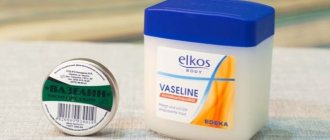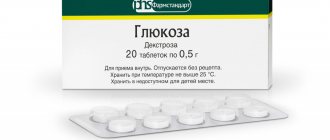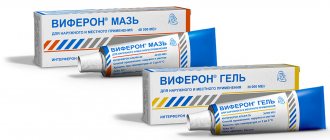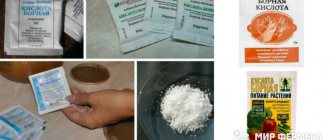Roaccutane®
Pregnancy is an absolute contraindication for therapy with Roaccutane®. If pregnancy occurs, despite warnings, during treatment or within a month after the end of therapy, there is a very high risk of giving birth to a child with severe malformations.
Isotretinoin is a drug with a strong teratogenic effect. If pregnancy occurs during a period when a woman takes isotretinoin orally (at any dose and even for a short time), there is a very high risk of giving birth to a child with developmental defects.
Roaccutane® is contraindicated in women of childbearing potential unless the woman's condition meets all of the following criteria:
- she must have severe acne that is resistant to conventional treatments;
- she must accurately understand and follow the doctor’s instructions;
- she must be informed by the doctor about the danger of pregnancy during treatment with Roaccutane® within one month after it and urgent consultation if pregnancy is suspected;
- she should be warned about the possible ineffectiveness of contraceptives;
— she must confirm that she understands the essence of the precautionary measures;
- she must understand the need and continuously use effective methods of contraception for one month before treatment with Roaccutane®, during treatment and for a month after its completion (see section “Interaction with other drugs”); it is advisable to use 2 different methods of contraception at the same time, including barrier;
- she must have received a negative result from a reliable pregnancy test within 11 days before starting the drug; A pregnancy test is strongly recommended monthly during treatment and 5 weeks after the end of therapy;
- she should start treatment with Roaccutane® only on the 2-3 day of the next normal menstrual cycle;
- she must understand the need for mandatory visits to the doctor every month;
- when being treated for a relapse of the disease, she must constantly use the same effective methods of contraception for one month before starting treatment with Roaccutane®, during treatment and for a month after its completion, as well as undergo the same reliable pregnancy test;
- She must fully understand the need for precautions and confirm her understanding and desire to use reliable methods of contraception as explained to her by the doctor.
Use of contraception as directed above during treatment with isotretinoin should be recommended even in women who do not routinely use contraception due to infertility (except in patients who have had a hysterectomy), amenorrhea, or who report not being sexually active.
The doctor must be sure that:
— the patient has a severe form of acne (nodulocystic, conglobate acne or acne with a risk of scarring); acne that does not respond to other types of therapy;
- a negative result from a reliable pregnancy test was obtained before starting the drug, during therapy and 5 weeks after the end of therapy; the dates and results of the pregnancy test must be documented;
- the patient uses at least 1, preferably 2 effective methods of contraception, including a barrier method, for one month before starting treatment with Roaccutane®, during treatment and for a month after its completion;
— the patient is able to understand and fulfill all of the above requirements for pregnancy protection;
— the patient meets all of the above conditions.
Pregnancy test
According to current practice, a pregnancy test with a minimum sensitivity of 25 mIU/ml should be performed in the first 3 days of the menstrual cycle:
Before starting therapy:
— To exclude possible pregnancy, before starting contraception, the result and date of the initial pregnancy test must be recorded by a doctor. In patients with irregular menstruation, the timing of a pregnancy test depends on sexual activity and should be performed 3 weeks after unprotected intercourse. The doctor should inform the patient about contraceptive methods.
— A pregnancy test is carried out on the day of prescription of the drug Roaccutane® or 3 days before the patient’s visit to the doctor. The specialist should record the test results. The drug can only be prescribed to patients receiving effective contraception for at least 1 month before starting therapy with Roaccutane®.
During therapy:
— The patient must visit the doctor every 28 days. The need for monthly pregnancy testing is determined in accordance with local practice and taking into account sexual activity and previous menstrual irregularities. If indicated, a pregnancy test is performed on the day of the visit or three days before the visit to the doctor, the test results must be recorded.
End of therapy:
- 5 weeks after the end of therapy, a test is performed to exclude pregnancy.
A prescription for Roaccutane® for a woman capable of childbearing can be issued only for 30 days of treatment; continuation of therapy requires a new prescription of the drug by a doctor. It is recommended that a pregnancy test, writing a prescription and receiving the drug be carried out on the same day.
The drug Roaccutane® should be dispensed at the pharmacy only within 7 days from the date of issuing the prescription.
To help physicians, pharmacists and patients avoid the risk of fetal exposure to Roaccutane®, the company aims to warn about the drug's teratogenicity and emphasize the absolute mandatory use of reliable contraceptive measures for women of childbearing age. The program contains the following materials:
for doctors:
— a doctor’s guide to prescribing Roaccutane® to women
— informed consent form for the patient
— form for recording the prescription of the drug to women for the patient:
— patient information brochure
- what you need to know about contraception
— for the pharmacist:
— a guide for the pharmacist on the dispensing of the drug Roaccutane®.
Full information about teratogenic risk and strict adherence to measures to prevent pregnancy should be provided to both men and women.
For male patients
Existing data indicate that in women, exposure to the drug from the semen and seminal fluid of men taking Roaccutane® is not sufficient to cause the teratogenic effects of Roaccutane®.
Men should exclude the possibility of other persons, especially women, taking the drug.
If, despite the precautions taken, pregnancy does occur during treatment with Roaccutane® or within a month after its end, there is a high risk of very severe fetal malformations (in particular, from the central nervous system, heart and large blood vessels) . In addition, the risk of spontaneous miscarriage increases.
If pregnancy occurs, therapy with Roaccutane® is discontinued. The advisability of maintaining it should be discussed with a doctor specializing in teratology. Severe congenital malformations of the fetus in humans associated with the use of Roaccutane® have been documented, including hydrocephalus, microcephaly, cerebellar malformations, anomalies of the external ear (microtia, narrowing or absence of the external auditory canal), microphthalmia, cardiovascular anomalies (tetrad Fallot, transposition of the great vessels, septal defects), malformations of the face (cleft palate), thymus gland, pathology of the parathyroid glands. Because isotretinoin is highly lipophilic, it is very likely that it passes into breast milk. Due to possible side effects, Roaccutane® should not be prescribed to nursing mothers.
Roaccutane: Dosage
Good afternoon I was prescribed Roaccutane at a dosage of 20 mg 2 times a day. But now the warehouse where I buy only has a dosage of 10 mg. I would like to know if it is possible to take two 10 mg capsules instead of one 20 mg? - Olga
2009
Dear Olga! Yes, you can take two 10 mg capsules of Roaccutane instead of one 20 mg capsule. Do not forget to take the drug after meals (with fats), because in this case, the bioavailability of the active substance increases approximately 2 times. Dermatologist Panarin O.V.
Note!
The description of the drug Roaccutane on this page is a simplified author’s version of the apteka911 website, created on the basis of the instructions for use.
Before purchasing or using the drug, you should consult your doctor and read the manufacturer's original instructions (attached to each package of the drug). Information about the drug is provided for informational purposes only and should not be used as a guide to self-medication. Only a doctor can decide to prescribe the drug, as well as determine the dose and methods of its use.
What are the possible side effects?
Most of the reactions listed below are dose dependent. The higher the dose, the more pronounced the side effects and vice versa. It is also worth noting that adverse reactions (ARs) are reversible and disappear after completion of treatment or discontinuation of the drug.
Most often, NRs occur in the form of:
- headache;
- mood disorders, including depression;
- photophobia and visual acuity impairment;
- diarrhea;
- pain in the intestines;
- nausea;
- bleeding;
- pancreatitis;
- anemia;
- decrease in the number of leukocytes;
- liver dysfunction;
- pain in muscles and joints;
- dry skin;
- cheilitis, etc.
The full list of adverse reactions is described in the instructions - be sure to read it before using the medicine.
Stepwise dose adjustment of Roaccutane (Acnecutane)
Dear Doctor! Tell me, how important is the stepwise dose adjustment of Roaccutane at the final stage of acne treatment? Why is this stepwise dose adjustment needed and is it necessary at all? Could the effectiveness of taking the drug really decrease if there was no stepwise correction? - Irina
2009
Dear Irina! Indeed, there are medications (for example, hormonal), in the treatment of which the daily dosage should be gradually reduced until complete withdrawal. However, Roaccutane (Acnecutane) is not one of these drugs. A “stepwise” dosage adjustment of Roaccutane (Acnecutane) upon completion of therapy is not necessary. Dermatologist Panarin O.V.
Roaccutane: Daily and cumulative doses
Hello, Oleg Valerievich! Under the strict supervision of a doctor, I started taking Roaccutane about 1.5 months ago: I started with 40 mg/day, then the dose was lowered to 30 mg/day, and now I take 20 mg/day. The only side effects are mild dry lips. My doctor claims that, according to the latest research, there is no need to take a cumulative dose; mg of the drug per kg of body weight has no meaning. And one should proceed only from visible results, and gradual and slow withdrawal of the drug is also important. Tell me, please, is this true? – Karina
2009
Dear Karina! I do not believe that “gradual and slow” withdrawal of Roaccutane or Acnecutane is important - I have not seen any clinical studies. It is possible to get rid of acne without reaching the cumulative dose, but the percentage of relapses is significantly higher than after reaching the recommended total dose. The daily dose of Isotretinoin capsules is determined mainly by the severity of acne, adjusted depending on tolerability, laboratory parameters, etc. Dermatologist O.V. Panarin.
Action of Roaccutane (Acnecutane)
Hello, Oleg Valerievich! I would like to ask how exactly Roaccutane works during treatment with it, does it restore metabolism or something else? Thank you in advance. - Paul
2009
Dear Pavel! With acne, the pathological process occurs in the sebaceous glands and hair follicles. Roaccutane or Acnecutane contain the active substance Isotretinoin (a retinoid, like vitamin A, but much more active). Isotretinoin and its metabolites (substances formed in the body from Isotretinoin) greatly reduce the production of sebum by the sebaceous glands, reduce the size of the sebaceous glands (the result of which is the elimination of black and white “dots” - comedones, a significant reduction in the number of bacteria that cause inflammation), themselves have an anti-inflammatory effect. Because Roaccutane (Acnecutane) can cause serious side effects (see instructions), it should be prescribed for severe forms of acne (for example, acne that leaves scars), if months of treatment with traditional methods of treatment are ineffective, if the patient is in a severe psycho-emotional state caused by a cosmetic defect ... Dermatologist Panarin O.V.






